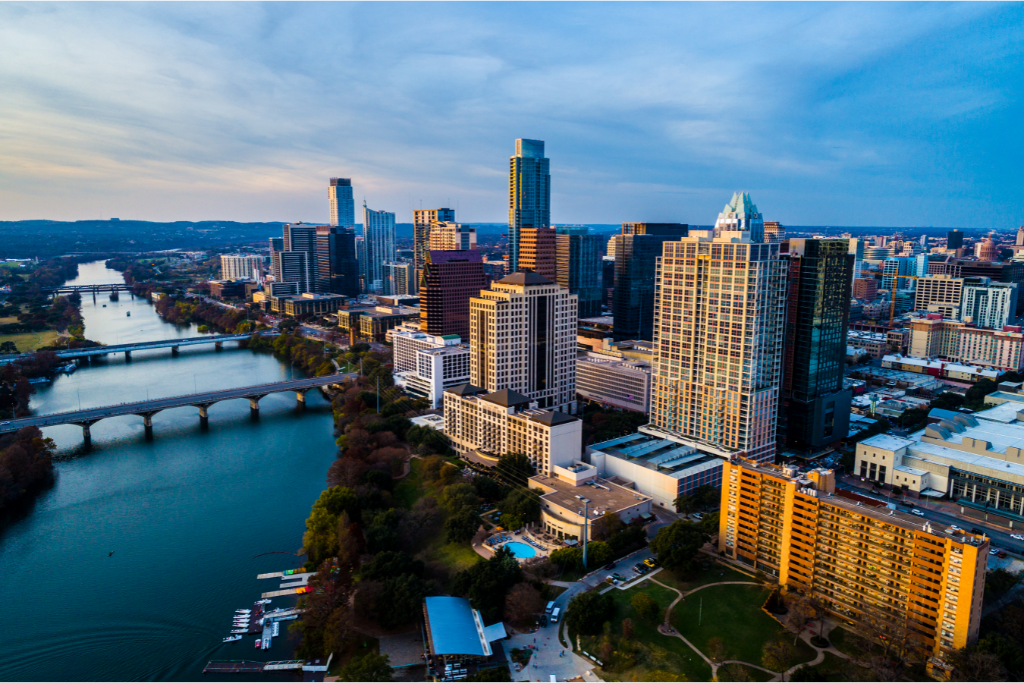1. First steps before moving to London
Finding a job
According to the Office for National Statistics, From August to October 2023, the UK experienced a decline of 58,000 job opportunities, marking the 16th consecutive quarter of decreasing vacancies across 16 out of 18 industry sectors. Despite this, annual growth in regular pay was notable, at 7.7% in Great Britain for July to September 2023. However, when adjusted for inflation, the real growth rates for total pay and regular pay were 1.4% and 1.3%, respectively.
The labor market faced challenges, as evidenced by 229,000 working days lost due to labor disputes in September 2023, primarily in the health, social work, and education sectors. A revised estimate for payrolled employees in October 2023 showed an increase of 33,000, reaching 30.2 million, although this figure is provisional and subject to revision.
Due to uncertainty in Labour Force Survey (LFS) estimates, alternative figures derived from Pay As You Earn Real-Time Information were provided, indicating a slight decrease in the UK employment rate to 75.7%, an unchanged unemployment rate at 4.2%, and a stable economic inactivity rate at 20.9% for July to September 2023.
Getting there
Below are some travel options to get to London from different parts of the country include
Flying: Flying is the most convenient way to move to London. Book a flight from your departure city to Heathrow Airport, depending on your destination within London.
Train: You can also take the train with National Rail as an alternative.
Bus: If you want another way to travel, London cities have bus services like Arriva London, and Megabus, that can get you there.
Find a trusted removal company or van rental
Being able to move your entire home to a new place is one of the most stressful events in life. Finding a trusted removal company can be a time-consuming task. Save yourself time and energy by hiring a removal company or renting a van.
To find the best van hire or removal company, look for good reviews, a professional-looking website and years of experience. Planning a move to London? Check out some of the best removal companies in London.
Local Transportation in London
Understanding the local public transportation system is essential if you are relocating to a new city. Below are the available public transportation options that you can consider when moving in London.
Trains that operate in tunnels below a city are sometimes referred to as the Metro or the Underground. The London Overground provides a convenient alternative mode of transit in and around London. When riding the DLR, you can transfer to the London Underground. Both London City Airport and the IFS Cloud Cable Car can be reached via the DLR.
Must dos before your arrival
Moving to London is an exciting yet challenging adventure, and preparing in advance can make your transition smoother:
- London has subways, buses, and taxis. Download useful apps like Google Maps or check your local websites for easy navigation.
- Study some local etiquette and understand London’s diverse culture and adapt to it.
- Update your voter registration in London. Normally, you only need to register once, not for each election. If your name, residence, or nationality has changed, you must re-register.
2. Upon your arrival in London
Must dos right upon your arrival
- London’s transportation system is important and helpful for getting around.
- Familiarize yourself with routes to navigate the city efficiently.
- Take a walk around your neighborhood to get familiar with local shops, restaurants, and services.
Exchanging your driver’s license
If you would like to exchange your international driving license for a UK driving license, you could be overwhelmed by the sheer number of restrictions and requirements. The procedure varies depending on where your initial license was granted and if you are an official resident of the United Kingdom. You may check the instructions and learn how to exchange your license.
Setting up a bank account
Obtaining a bank account in London is a straightforward process. You only need to present a copy of your valid state or government-issued ID, such as a driver’s license or passport.
Lloyds Bank, Barclays Bank, and NatWest all have over 1,000 branches. Outside these two groupings, HSBC is the only bank “brand” with more than 1,000. It presently has 1,073 open branches.
Getting health insurance
The National Health Service (NHS), which is run by the government, is the main provider of healthcare in England. Patients don’t have to pay to use the NHS, but there are fees for eye exams, dental care, prescriptions, and many other types of personal care. All permanent residents of England get free health care through the NHS.
The organization is one of four that make up the National Health Service in the United Kingdom. Because health is a devolved issue, healthcare services are not the same all over the United Kingdom. NHS England is in charge of healthcare in England. Even though the public sector provides most of England’s health care, people who are willing and able to pay can get private health care and a wide range of alternative and complementary treatments.
|
Type of healthcare |
Cost |
|
Employer-sponsored health insurance *It depends on the employee ages and the tier of cover. |
£45.00 |
|
Non-employer-sponsored health insurance |
£84.35 |
|
Gym |
£52.78 |
Numbeo (Sept 2023), NimbleFins (Jan 2023), & My Tribe Insurance (Sep 2023)
3. Best places to live in London
Moving to London can be exciting and overwhelming. Finding the perfect neighborhood in London is essential for a satisfying living experience, whether moving locally or from afar.
This table simplifies the process of living in London. It highlights the top 10 neighborhoods for quality of life in 2023, whether you’re drawn to the city’s vibrancy or seeking employment opportunities. It may help you find the neighborhood you want to live in.
|
Neighborhood |
Characteristics |
|
Bexley |
Low housing prices |
|
Sutton |
Perfect for nature lovers |
|
Havering |
Vibrant nightlife |
|
Hillingdon |
Best for excellent shopping facilities & green spaces |
|
Bromley |
Ideal place for socialising and recreation |
|
Harrow |
Historical borough |
|
Kingston upon Thames |
Best for the outdoors |
|
Merton |
Best for sport life |
|
Barnet |
Health-conscious borough |
|
Richmond upon Thames |
Lowest crime rate in London |
Setting up home services
Whether you own or rent, you are responsible for utility bills, which include energy prices for gas and electricity. In London, utility expenses are generally in line with the national average. However, it’s important to note that London can experience fluctuating weather conditions, with cold winters and occasional heat waves during the summer.
This means planning your budget to cover heating expenses and investing in weather-appropriate appliances, such as a good heater and insulation, is crucial for maintaining comfort and energy efficiency in your London home.
Broadband and mobile phones in London
It can be hard to find the right broadband deal because there are so many companies that offer different packages based on the user’s needs, expectations, and online activities. There are different speeds depending on how broadband is used and how many devices are connected. This allows you to get started on your online communication without hassle or trouble. You may choose the best broadband companies according to your needs.
There are four “main” mobile operators in the UK, each of which is the owner of their respective portion of the mobile network infrastructure. They are Vodafone, EE, O2, and Three, and collectively they are referred to as the “big four.” Numerous more companies offer mobile phone service, and these companies are referred to as mobile virtual network operators (MVNOs).
|
Utilities |
Cost |
|
Basic (Electricity, Heating, Cooling, Water, Garbage) for 915 sq ft Apartment |
£315.27 |
|
Internet (60 Mbps or More, Unlimited Data, Cable/ADSL) |
£32.96 |
|
Total |
£348.23 |
Should you rent or buy?
No matter where you choose to live, one of your most significant ongoing expenses will be housing prices, and this is no exception in this big city. London is often considered one of the most expensive cities in the world when it comes to real estate and property prices.
Housing costs in London are among the highest in the United Kingdom and are a significant factor in the city’s overall cost of living. In the City of London, the average housing prices have continued to rise. In July 2023, the average price for a home was £905,489.00, compared to £862,653.00 in July 2022, according to UK house price statistics.
If you’re looking to save money, having knowledge about London’s housing market is key.
Cost of rent in London
|
Area/Neighborhood |
1-bed apartment |
3-bed apartment |
|
London (Outside of Center) |
£1,530.00 |
£2,533.75 |
Cost of buying a property in London
|
Area/Neighborhood |
Average home price |
|
London |
£905,489.00 |
UK House Price Index (Jul 2023)
4. Cost of living in London
|
Category |
Monthly cost |
|
1 bed apt rent outside city center |
£1,530.00 |
|
Groceries Numbeo’s grocery list (£60.26 multiplied by 4) |
£241.04 |
|
Utilities Electricity, heating, cooling, water, garbage |
£315.27 |
|
Internet with 60 Mbps |
£32.96 |
|
Transit pass |
£156.30 |
|
Entertainment Meal, taxi, movie |
£84.40 |
|
Gym membership |
£52.78 |
|
Total |
£2,412.75 |
5. The weather in London
Weather affects daily life. You are strongly affected by the weather, especially if you travel and spend much of your time outside. London’s winter weather is unpredictable, so dress appropriately. If you’re considering moving to London, here is some weather/seasons advice.
Moving to London in the springtime is a wonderful time. The atmosphere is amazing. You can feel the excitement as everyone prepares for their summer days out. You can expect warm, sunny days with higher chances of rain, but the rain will only last a short period of time. April’s temperature average is at 13°C (55°F).
Summer in London is a great time for so many reasons. The people of London gather together in parks, gardens, and squares to enjoy the weather and spend quality time with friends and family. London’s summers are moderate, but not without occasional rain showers. The typical high during the day is around 68 degrees Fahrenheit (20 degrees Celsius).
Autumn is one of the best seasons in London. The temperature is pleasant, and the weather forecast is usually very predictable. It’s 15 °C (59 °F) during the day and 6 °C (43 °F) at night. Northern locations are colder than southern ones. However, there is also a downside: between September and December, you can get some rain or fog.
Wintertime is when you may expect snowy days, long evenings, and frequent power cuts. In winter, the sun rises about 7 or 8am and sets around 4pm. Winter temperatures range from 5 and 7 °C (41-45 °F) while at night it may drop slightly below 0 °C (32 °F), and bright days are frigid. Snowy walks, hot cocoa, mulled wine, and all kinds of fun stuff are waiting for you! On the other hand, winter is a great time for shopping in London, as many shops are closed during the summer.
(*Seasons of the Year)
6. What to do as a local in London
The best way to get to know a city is by knowing what to do and where. You can get a good idea of what you can see, experience, and enjoy in London by picking a few of these suggestions—we’re sure you’ll find the best activities once you’ve moved in.
This is our list of the 10 best things to do when moving to London:
- Explore your passion for art by visiting well-known museums such as the Museum of London and the British Museum.
- Go shopping at Borough Market.
- You and your loved ones can visit St. James’s Park and enjoy the view.
- Be amazed by Buckingham Palace, which is open to the public except for the private quarters.
- Go back and learn history by visiting the Houses of Parliament.
- Check out the beauty of Westminster Abbey, where royal weddings and coronations are held.
- Take your family to the West End Theatre District to see a Broadway play.
- Go and walk on one of the busy roads named Piccadilly Circus, similar to New York’s Time Square.
- Face your fear of heights by visiting The London Eye, or simply enjoy the view.
- St. Paul’s Cathedral is a must-see church in London.
7. Fun facts about London
- Fun Fact #1: Hugh Grant isn’t as well-known in the UK as the area of Notting Hill in London, which is known for its amazing Carnival. Every August, for two days, people from London’s Caribbean community take to the streets for Notting Hill Carnival. Music, floats, food, and a general sense of fun bring a million people to the event every year.
- Fun Fact #2: The City of London is the smallest county in England and a tiny section of the metropolis.
- Fun Fact #3: London buses carry 6.5 million passengers every day.
Conclusion
The main advantage of moving to London is that it’s one of the most vibrant global cities. There are many things to do and see if you are into culture and history, as well as exciting nightlife.
London has a lot of people who come from other countries and cities, which means there is an exceptionally high chance that you will find friends with the same interests as you.
Moving to London offers more than culture and history alone, but the city isn’t just great-it actually has some unique features that separate it from other major global cities. Are you moving soon? You may be searching for the top van hire companies in London.





